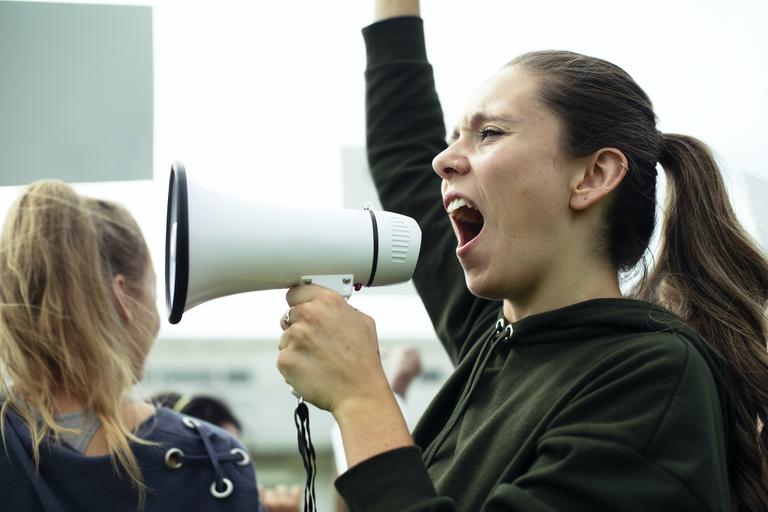
Law & Principles
Tina Korbe Dzurisin | February 28, 2020
USAO event implies a narrow range of views among women
Tina Korbe Dzurisin
One hundred years ago today, the Oklahoma Legislature ratified the 19th Amendment, which granted women the right to vote. It’s a centennial worth celebrating—but a planned panel discussion at the University of Science and Arts of Oklahoma (USAO) this evening entirely misses why.
At all times and in all places, women have thought for themselves, kept their own counsel, maintained fiercely independent interior lives—but, in the United States, it’s only been in the last century that women have been able to vote for themselves. If gaining the right to vote meant women lost the right to think, however, it was no gain at all—and certainly no milestone worth remembering.
Yet, many grievance feminists and identity politicians imply at every turn that women either have abandoned thinking independently or, if they haven’t, that they should. That is, they either claim to speak for all women, ignoring that many women don’t share their views—or they say those women who do not share their views betray their own sex.
Whoever planned tonight’s USAO event seems to have the same bias. “Votes for Women in the 21st Century: An Insider Perspective” will feature five Oklahoma female politicians—with a surprisingly narrow range of opinions.
State Sen. Carri Hicks (D-Oklahoma City), state Rep. Cyndi Munson (D-Oklahoma City), House Minority Leader Emily Virgin (D-Norman), Oklahoma City Councilwoman Nikki Nice, and Labor Commissioner Leslie Osborn will provide the “insider perspective” touted in the title of the evening.
Subsequent to the panel, NPR correspondent Mara Liasson will deliver the keynote.
To state the obvious, three of the five panelists are Democrats. A fourth, City Councilwoman Nice, achieved office in a nonpartisan election but was endorsed by the Oklahoma County Democratic Party and Young Democrats of Oklahoma. The fifth, Commissioner Osborn, served in the state legislature as a Republican, but, toward the end of her tenure there, famously declared, “I might have to give up my Republican card and join your side of the table.” She earned a low 48 percent rating from the American Conservative Union in her last year in the legislature.
Of the three Democratic panelists, Munson and Virgin are in lockstep with their party’s stance on what is arguably the most significant and controversial issue of specific interest to women. Like every Democratic presidential candidate (and many an outspoken Democratic celebrity), Munson and Virgin apparently regard abortion as sacrosanct.
In 2018, both voted against a bill to eliminate Medicaid reimbursements to abortion providers that traffic fetal body parts.
In 2015, when Oklahoma became the second state to prohibit late-term, dismemberment abortion, Virgin voted against the prohibition.
In 2011, Virgin voted against House Bill 1888, the Pain-Capable Unborn Child Protection Act, which prohibits abortions of unborn children developed enough to experience intense pain.
What some women might argue is the very essence of womanhood—that is, the uniquely feminine capacity to conceive, carry, and birth children—pro-abortion Democratic politicians tend to regard as, at best, an ability to be managed very, very carefully or, at worst, a total liability.
Meanwhile, even as she claims to want more women in government, Hicks voted against three accomplished female nominees for the State Board of Education.
While Liasson has worked hard to maintain a modicum of objectivity and independence as a journalist, fielding criticism from her NPR colleagues for her side gig as a Fox News contributor, it’s unlikely her keynote will provide a genuinely robust counterpoint to the views championed by the five panelists who will precede her tonight. She’s been known to compare U.S. Rep. Nancy Pelosi (D-CA) to Winston Churchill, after all.
At an event that will supposedly celebrate and call for increased female representation in politics, female conservatives will apparently be sadly underrepresented. That’s particularly lamentable in a state in which most female voters—55 percent—identify themselves as conservative while only 14 percent identify themselves as liberal.
Even more underrepresented tonight, though, and in too many public discussions, are those women who believe it is possible to fully participate in the economic and political life of society without aspiring to public office or other visible positions—women who are content to make hidden contributions. But, then, how could the quiet, countercultural thoughts of such women influence the course of politics at all—except by their own votes?
Here, then: Cheers to the 19th Amendment!
Tina Korbe Dzurisin
Research Associate
Formerly a staff writer at The Heritage Foundation, Tina Korbe Dzurisin is a wife, mother to four small children, and an OCPA research associate.